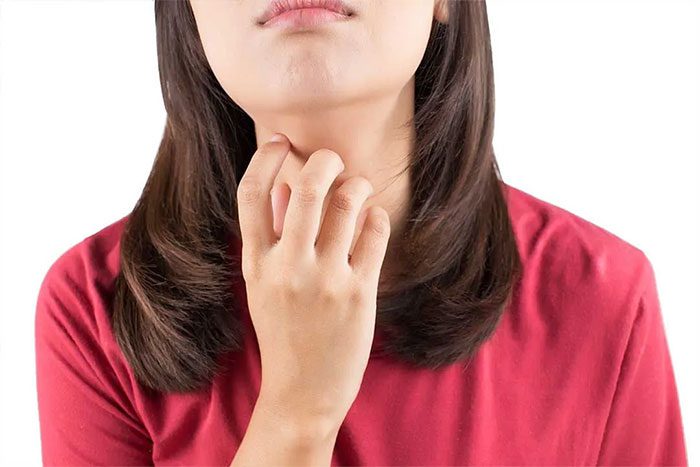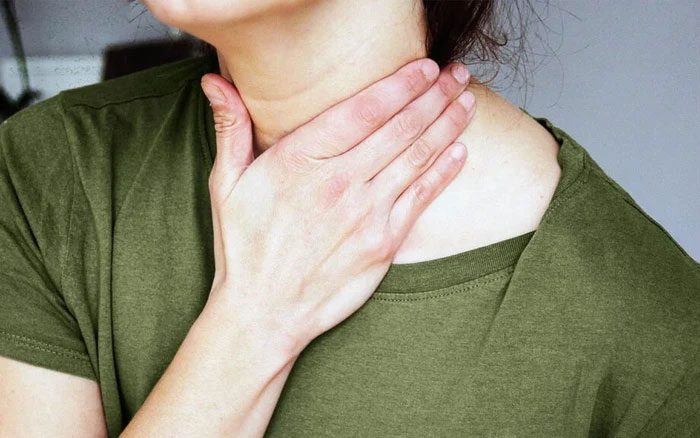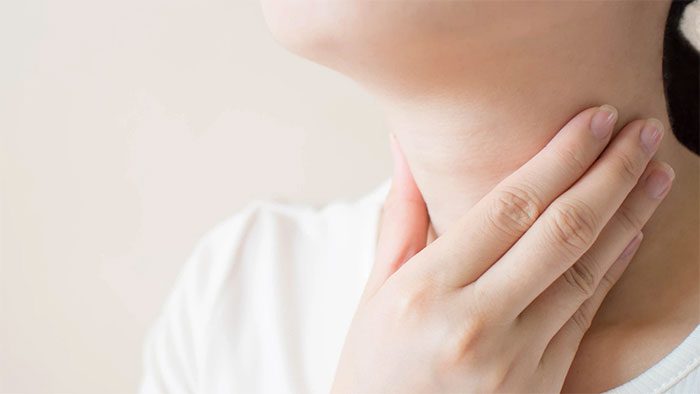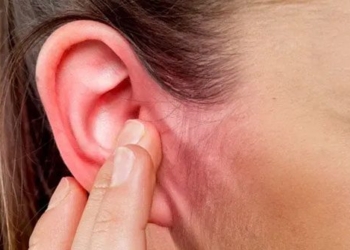There are many causes and various types of allergies that lead to throat itching along with other distinct symptoms.
Throat Itching Due to Allergies: Causes, Symptoms, and Treatments
1. Causes of Allergy-Induced Throat Itching
Allergy symptoms occur when your immune system produces antibodies to fight off harmless agents that it perceives as threats to your body. These hypersensitivity reactions are often associated with immunoglobulin E (IgE) antibodies, which increase mucus production in the nasal passages and sinuses, leading to post-nasal drip. This post-nasal drip causes mucus to flow down the back of the throat. The inflammation due to the IgE antibodies can lead to a persistent itching sensation in the throat.
Allergies can also be triggered by environmental allergens, including food substances such as dust mites, pollen, mold spores, pet dander, cold air, medications, insect bites, eggs, milk, peanuts, nuts, shellfish, wheat, and more.
Inhaling pollutants can also cause allergic reactions leading to throat itching, commonly from sources like smoke, pesticides, air pollution, and cleaning products.

Allergies can cause throat itching and various other symptoms. (Photo: Internet).
2. Symptoms of Throat Itching Due to Allergies
Throat itching due to allergies typically occurs alongside other allergy symptoms, including:
- Sneezing
- Coughing
- Itchy eyes, itchy nose, itchy mouth
- Fatigue
- Wheezing
- Shortness of breath
- Stuffy or congested nose
- Headache
- Post-nasal drip
- Runny nose
- Nausea and vomiting (often related to food allergies).
Throat itching due to allergies usually feels different from other conditions affecting your throat, specifically:
- The throat may feel itchy, ticklish, as if you need to clear your throat continuously.
- Itchy throat does not accompany a painful sensation like sore throat from the flu, common cold, or other infections that may affect the respiratory tract.
3. Treatment for Allergy-Induced Throat Itching
There are several methods to relieve throat itching due to allergies, including home remedies. Some treatments target your immune system, such as antihistamines, while others aim to alleviate discomfort in your throat.
Antihistamines
This class of medication works by blocking the action of histamines, chemicals that produce allergy symptoms. Antihistamines are typically available over-the-counter and can be purchased at pharmacies. However, if your allergy condition occurs frequently (year-round allergies) and requires prolonged use of over-the-counter medications, you should consult a doctor for appropriate medication advice.

Throat itching due to allergies can be relieved at home. (Photo: Internet).
Lozenges/Cough Syrups
Lozenges and cough syrups dissolve in the mouth, helping to reduce throat irritation and alleviate the itching sensation. These lozenges typically contain soothing ingredients like menthol. Note that lozenges are not recommended for young children due to choking hazards, and products containing menthol should not be given to children under 6 years old.
Hard Candy
Hard candies can help increase saliva production when sucked on, providing a solution to “moisten” the throat that is itchy due to allergies.
Hydration
If you do not drink enough water, you will not produce sufficient saliva, worsening allergy-related throat itching. You can determine if you are hydrating adequately based on the color of your urine. Light yellow urine indicates proper hydration, while dark yellow urine suggests it’s time to drink more water.
In addition to plain water, you can also hydrate your body with fruit juices, soups, or hot tea. However, be cautious not to use acidic fruit juices for hydration, as these can further irritate your throat.
Honey
A spoonful of honey can help soothe throat itching temporarily. You can consume honey directly or mix it with tea or warm water. Note that honey should not be given to children under 1 year old due to the risk of botulism.
Salt Water Gargle
Dissolve 1/2 teaspoon of salt in a glass of warm water and gargle, spitting it out every hour until the itching sensation decreases. It’s best to gargle immediately at the first sign of throat irritation.
Humidity Levels
Cold, dry air can trigger cold weather allergies and cause throat itching. Using a humidifier to moisten the air you breathe indoors and wearing a mask or wrapping a scarf around your mouth when going outside can help reduce this irritation. Air purifiers with activated carbon filters can also be effective in removing airborne allergens, preventing throat itching and allergies in general from worsening.

Pay attention to indoor humidity levels if you are allergic to dry, cold air. (Photo: Internet).
4. Preventing Throat Itching Due to Allergies
To prevent throat itching due to allergies, it is crucial to manage and control allergies effectively. You should minimize exposure to allergens and take measures to protect your nasal passages and throat:
- Avoid substances that can dry out your sinuses, such as caffeine and alcohol.
- Use humidifiers and ensure they are cleaned regularly to prevent mold growth.
- Drink plenty of water daily according to your body condition and activity level.
- Stay away from pollutants; remain indoors on days with high air pollution, cold dry air outbreaks, fog, or during peak hours.
- Wear a mask when cleaning, especially when dealing with carpets, sofas, and bedding.
- Change clothes and wash your hands with soap and clean water after returning home from outside.
- Avoid touching your eyes, nose, and mouth with your hands.
- Use saline nasal sprays if you need to travel to keep your sinuses warm.
- Boost your immune system by eating healthily, maintaining regular exercise, and getting enough sleep.
5. When to See a Doctor for Allergy-Induced Throat Itching?
If you continue to experience throat itching despite applying home remedies and if the itching worsens, impacting your daily activities, you should promptly consult a doctor.
Throat itching can be an allergic reaction to anaphylaxis, requiring immediate medical attention. (Photo: Internet).
The following signs indicate you should seek medical help promptly:
Throat irritation and itching that does not improve within 5 days
- Fever of 100.9°F (38.3°C) or higher lasting for several days
- Blood in saliva or mucus
- Dehydration
- Difficulty breathing
- Excessive drooling, especially in young children
- Swelling, joint pain.
In general, allergies can cause throat itching along with other uncomfortable symptoms. However, this condition will gradually subside when appropriate treatments are applied. If you suspect your throat itching is due to other health conditions such as COVID-19, flu, or strep throat, you should contact your doctor for early consultation.





















































